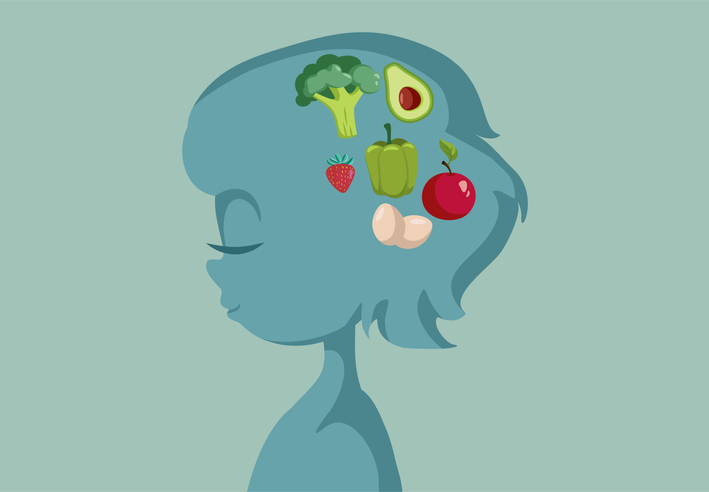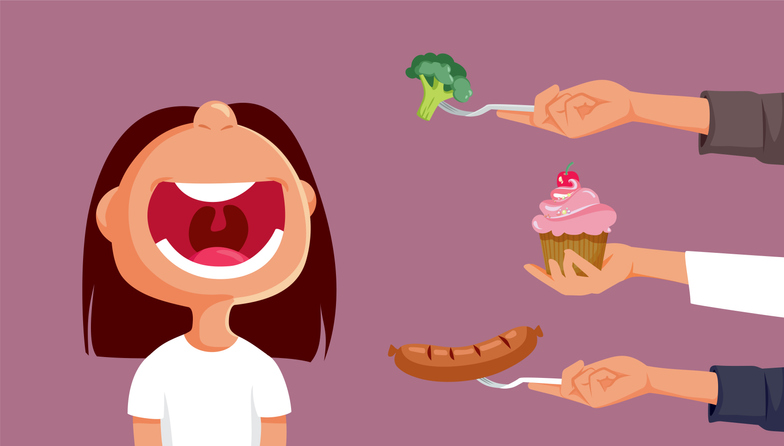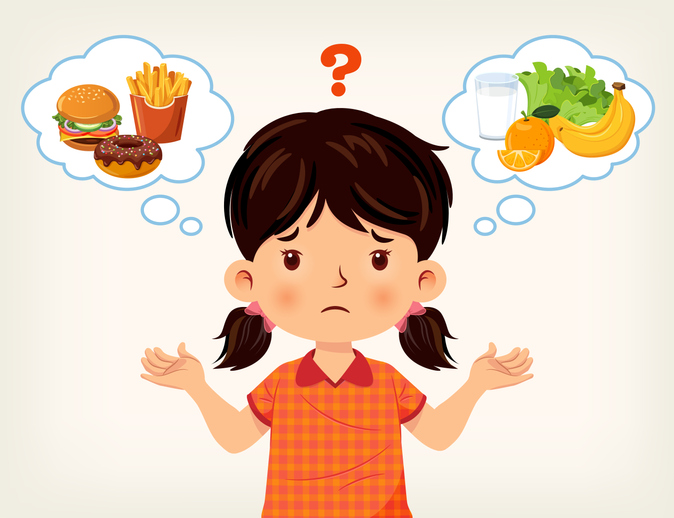View List of Childhood Nutrition Resources for Parents and Caregivers
Parents have much to worry about when it comes to raising a child. How can you keep your child safe? What can you do to ensure that your child is healthy? How can you plan for your child’s happy, healthy future? One of the most important factors when it comes to the growth and development of a child is nutrition. The foods and beverages that your child takes in affects every area of their development and growth – physical, cognitive, emotional, psychological, and social. In this article, we will examine how you can foster your child’s healthy growth and development through proper nutrition, suggest what foods and drinks to avoid feeding your child, and provide you with a list of resources for healthy meals for your child.
The Importance of Nutrition to Brain Development

The first 1000 days of a baby’s life are crucial in healthy brain development. During this time in particular, children are quite vulnerable to deficits in nutrition, which can result in cognitive and behavioral deficiencies. Scientists note that, in order for a healthy brain to develop, a child must receive the essential nutrients of protein, fats, carbohydrates, water, vitamins and minerals. Just as important, they note, are micronutrients, such as choline, zinc, iron, vitamin B12, folate, iodine, and long-chain polyunsaturated fatty acids. These are vital in cognitive development. Examples of what deficiencies of certain vitamins and minerals can do to a child include:
- Deficiencies of iron during early childhood development can impact cognitive development and intelligence
- Zinc deficiencies in infants can lead to delays in motor development, as well as deficits in short-term memory and attention, and stunted growth
- Choline deficiencies can cause memory problems
- Iodine deficiencies can affect cognitive function and are the leading cause of intellectual disabilities worldwide
- Folate deficiencies in pregnant mothers can cause babies to be born with malformations such as anencephaly and spina bifida
- B12 deficiency can lead to neurological disorders and cerebral atrophy
- Vitamin A deficiency can cause visual problems and weaken a child’s immunity
- A deficiency of long-chain fatty acids can cause problems in brain development, memory, and visual recognition
The next 1000 days of a child’s life, typically during the preschool years, are also vital to overall development. Developmental changes that occur during this time prepare them for learning and the school environment.
If children do not receive proper nutrition in these years, they will likely show cognitive deficits and perform poorly in school, which can lead to problems with education throughout their lifetime and result in them earning lower incomes as adults.
A study from 2022 examined various nutritional interventions with children and their effects on cognitive performance. They found that supplementing children with multiple micronutrients increased their scores on cognitive tests. Another study found that daily iron supplementation for toddlers (age 1 to 4) for a period of three to four months could reverse developmental delays. A group of children ages 4 to 6 who were supplemented with meals containing fatty fish also scored slightly higher on cognitive tests than those who ate meals containing beef. In these studies, when nutritional supplementation was combined with psychosocial stimulation, however, the greatest increases in cognitive test results were seen.
What Should I Feed My Young Child to Enhance Growth and Development?

The World Health Organization (WHO) recommends that all infants begin breastfeeding within an hour of birth and be exclusively breastfed for their first six months. After age six months, foods should be introduced to children, in no particular order. These foods should contain variety and nutrients and be given throughout the day according to the child’s hunger signals.
Foods to feed your child should include fruit, vegetables, eggs, dairy, fish, meat, and grains. Unfortunately, in the Western world, many young children’s diets weigh heavily towards grains and eschew all other categories, with processed, sugary foods comprising much of the diet. Parents should avoid processed, refined, prepackaged foods with high amounts of sugar, fat, and salt.
Examples of foods to introduce to a young child include:
- Fruits, such as strawberries, bananas, pears, oranges
- Vegetables, like cooked spinach, peas, carrots, beets
- Whole grains, such as whole grain pastas, crackers and breads
- Meats, like lean beef, chicken, fish, lamb, turkey (in small pieces to prevent choking)
- Dairy, such as cheeses and yogurts
Remember to keep your child well-hydrated too! From ages 6 to 12 months, a child should be drinking four to six ounces of water daily, and either breast milk or formula. After age 1, cow’s milk may be introduced. The American Academy of Pediatrics recommends avoiding fruit juice until after age 1. After that, if you must give your child fruit juice, make sure it’s 100% fruit juice with no added sugars.
As your child grows, they will follow your lead in eating, so it’s a good idea to model healthy eating patterns for them. Limit foods high in sodium as well as sugar.
What Foods Should I Limit or Avoid Feeding My Child?

The Centers for Disease Control and Prevention (CDC) recommends limiting the following foods when feeding your child:
- Honey, before age 12 months- this can cause botulism and make a child seriously ill. Don’t add honey to any of your baby’s foods or drinks before age one
- Cow’s milk, before age 12 months – this can cause intestinal bleeding in young children, as a baby’s kidneys cannot process the proteins and minerals it contains
- Unpasteurized or raw foods or drinks – this might include milks, yogurts, cheeses or juice- these can cause diarrhea in children
- Foods with added sugars, as well as artificial sweeteners- you should avoid feeding kids younger than 24 months added sugars altogether, and severely limit them in children over 24 months of age
- Foods with lots of sodium/salt – this includes processed meats, canned foods, frozen foods, snacks, and prepackaged foods
- Fish with high levels of mercury – these include mackerel, orange roughy, marlin, swordfish, tuna, and shark. Mercury can be detrimental to a child’s developing brain and nervous system. See the link in the resources section below for recommended, healthy fish for kids with lower levels of mercury that will provide the omega 3 fatty acids their developing brains need.
- Beverages with added sugars – like sodas, sports drinks, flavored water and juices – these should be avoided in kids younger than 24 months and limited in kids over 24 months
- Juice before age 12 months – avoid feeling your baby juice until after age 1. After that, make sure it is 100% juice and only feed four ounces or less per day
- Drinks with caffeine – such as soda, tea, coffee, sports drinks – avoid giving these to kids under age 2, and limit them in kids older than 2
Childhood Nutrition Resources for Parents and Caregivers
The following is a list of nutrition resources that should be helpful for parents and caregivers of children of all ages in encouraging healthy growth and development.
General Healthy Eating
- Advice About Eating Fish – publication from the Food and Drug Administration that tells parents which fish are lower in mercury and should be encouraged, and which have higher mercury levels and should be avoided
- Ages 2-8 Feeding Recommendations – a publication by Healthy Eating Research, available in English and Spanish, discussing how to get kids to try new foods, and how to raise healthy, independent eaters
- Food Allergy Fact Sheets– by the Institute for Child Nutrition. Various food allergy sheets are available in English and Spanish
- Healthy Eating for Families – tips by the USDA’s Food and Nutrition Service
- Healthy Eating for Kids – tips by the USDA’s Food and Nutrition Service
- Healthy Eating for Preschoolers – tips by the USDA’s Food and Nutrition Service
- How to Get Your Child to Eat More Fruits & Veggies – tips for parents from the American Academy of Pediatrics
- MyPlate.gov– of the US Department of Agriculture, helps parents choose the right amounts and types of foods for themselves and their children
- Raising Healthy Eaters – by Children’s Healthcare of Atlanta, includes topics such as responsive feeding and eating together as a family
- Tips to Help Your Picky Eater – from the Centers for Disease Control and Prevention, offers different approaches for parents to use with picky eaters
Beverage Choices
- Offering Water– handout by the USDA’s Child and Adult Care Food Program (CACFP), includes recommended amounts and times of the day to offer kids water
- Recommended Drinks for Children Age 5 & Younger– offers drinks and their recommended amounts, from the American Academy of Pediatrics
- Serving Milk – handout by the USDA’s Child and Adult Care Food Program (CACFP), offers recommended amounts and types of milk based on age
Foods for Young Children
- Choking Hazards – by the Centers for Disease Control and Prevention, offers a list of foods to avoid in young children due to choking hazards
- Mealtimes with Toddlers Video Series – downloadable videos and handouts by the by the USDA’s Child and Adult Care Food Program (CACFP)
- Nibbles for Health: Nutrition Newsletters for Parents of Young Children – downloadable newsletters by the USDA’s Child and Adult Care Food Program (CACFP), available in English and Spanish
- Nutrition Series: First Foods for Young Children – YouTube series of videos by UNICEF’s Global Health Media Project
Meal Planning and Patterns
- Child Nutrition Recipe Box – by the Institute of Child Nutrition, offers healthy and child-friendly recipes
- Grow It, Try It, Like It! –Downloadable publications by the USDA Food and Nutrition Service, designed to help parents and caregivers encourage kids to grow their own fruits and vegetables and try new foods
- Meal Pattern Chart for Infants– Chart by the USDA’s Child and Adult Care Food Program (CACFP) outlining recommended meal and snack patterns for infants from birth through 11 months
- Meal Pattern Poster: Ages 1-2– poster from the CACFP outlining recommended meal and snack patterns for children ages 1-2
- Meal Pattern Poster: Ages 3-5– poster from the CACFP outlining recommended meal and snack patterns for kids ages 3-5
- Meal Pattern Poster: Ages 6-12 and 13-18 -poster from the CACFP outlining recommended meal and snack patterns for kids ages 6-12 and 13-18
- Meal Planning to Go Further with Food– ideas from Nemours Children’s Health for parents to plan and prep meals for children
Snacks
- A Guide to Smart Snacks in School – downloadable publication from the US Department of Agriculture’s Food and Nutrition Service
- Healthy Snacks: Quick Tips for Parents– ideas from the Office of Disease Prevention and Health Promotion of the US Department of Health and Human Services
- Snack Attack: 6 Healthy Snack Ideas for Kids – by Cleveland Clinic, offers six healthy ideas for snacks for parents to try with their kids
Reading Nutrition Labels
- How to Understand and Use the Nutrition Facts Label – by the Food and Drug Administration, with explanatory diagrams
Avoiding Sugar
- Choosing Breakfast Cereals that are Lower in Sugar – handout for parents from the USDA helping parents to read cereal labels and choose healthier options for kids
- Choosing Yogurts that are Lower in Sugar -handout for parents from the USDA helping parents to read yogurt labels and choose healthier options for kids
- Why Added Sugar Should be Avoided Before Age 2- by Children’s Healthcare of Atlanta, explains reasons to restrict sugar in a child’s diet before 24 months of age
Avoiding Salt
- Kids and Sodium: Serious Risks, Alarming Realities – by the Mayo Clinic Health System, explains the dangers of too much sodium in a child’s diet
- We Don’t Need to Add Salt to Food – by HealthyChildren.org, shows parents the sodium amounts in many foods kids eat and explains why sodium does not need to be added to anyone’s food
Avoiding Trans Fats
- Fats in foods for children: What do we need to know? – by PennState Extension, examines fats in many foods kids eat and how to read labels to determine how much fat is in foods
- Preschoolers’ Diets Shouldn’t Be Fat Free: Here’s Why-by HealthyChildren.org, discusses good and bad fats in kids’ diets
- The Truth About Trans Fat – by Super Kids Nutrition, examines what trans fat is and how to limit it in a family’s diet





